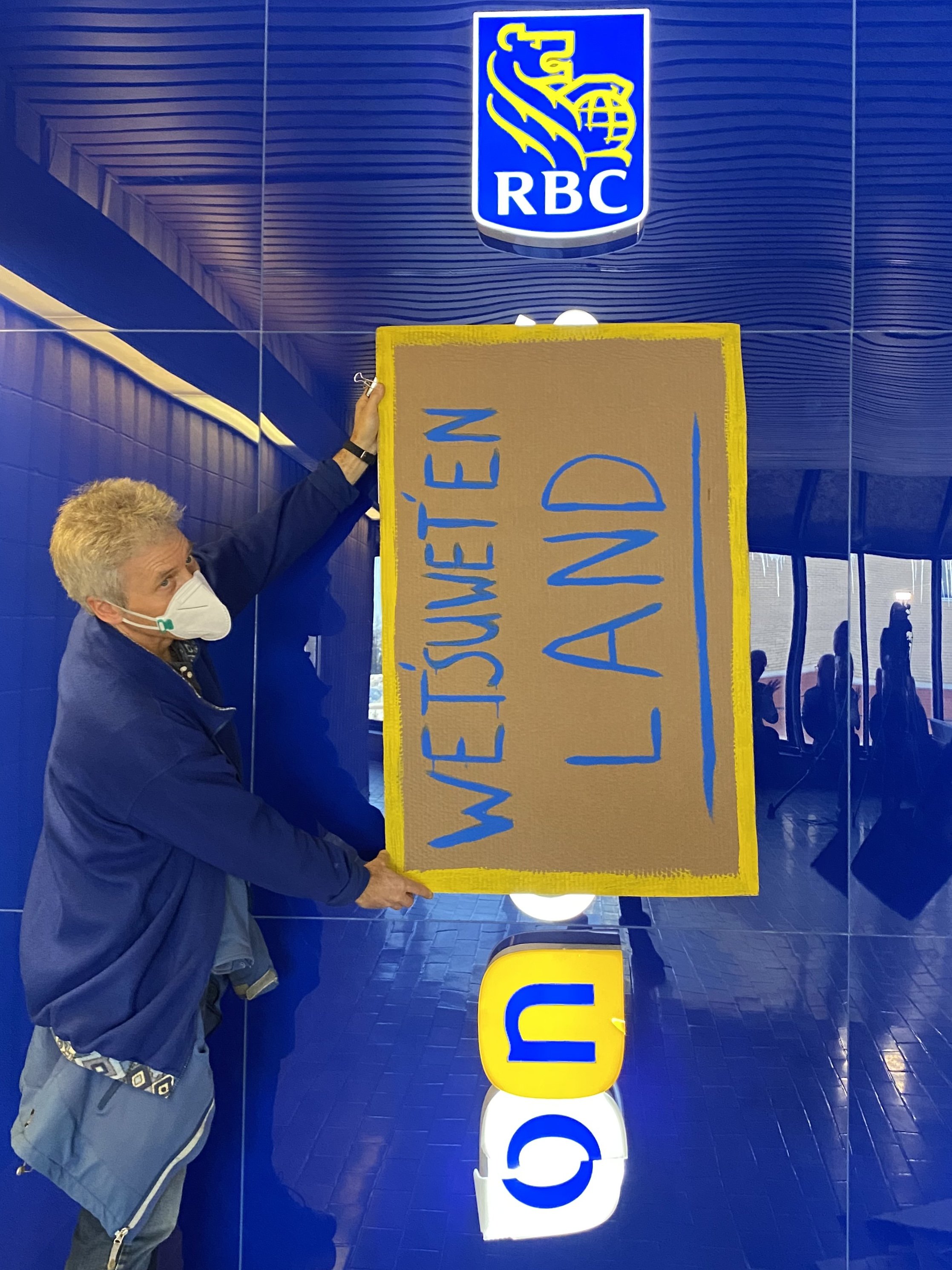“Fossil Banks? No Thanks” - Students Lead Protest Against RBC’s Investment in Fossil Fuels
On March 2nd at 1:30 PM, a group of students gathered to protest against the Royal Bank of Canada (RBC) at the on-campus branch located in the University Centre. Protestors were calling for the university to end its relationship with the bank due to its involvement in the fossil fuel industry.
Image courtesy of protest organisers.
RBC is Canada's largest financier of fossil fuels and the fifth largest in the world. The Royal Bank of Canada has invested over CAD $160 billion in the fossil fuel industry since the signing of the Paris Agreement in 2016. RBC is currently financing the Coastal Gaslink pipeline that runs through Wet'suwet'en territory. Indigenous communities argue that the project infringes upon their sovereignty and rights to their land. RBC was also criticised for not obtaining informed consent before the project and for the unwarranted arrest of several journalists who attempted to expose the bank's transgressions.
Chris Armiento, one of the protest organisers, kicked off the movement by delivering a scathing speech. Armiento argued that RBC is blatantly greenwashing and misleading students with their banking promises. He claims that young people no longer want to bank with RBC as they become increasingly conscientious of the environment and believe in standing up for their futures.
During the protest at Lakehead University, students were seen holding up signs with messages such as Fund futures, not pipelines and chanting slogans like "Banks banks, hear our plea – your investments' killing me!" Additionally, protest members distributed flyers to passersby, explaining their reasons for protesting.
Armiento expressed that the protesters demonstrated a peaceful stance and also presented an alternative option to RBC's on-campus banking services.
“We're not calling for the removal of any financial institution on campuses. We just don't want one that finances climate destruction and violates indigenous peoples' human rights," shared Armiento. "I've dealt with a couple credit unions. The ones I've spoken to do not finance fossil fuels, and they've been a great resource for everyday banking and financial literacy."
Moreover, he stated that RBC’s involvement in the fossil fuel industry clashes with Lakehead University’s position as a leading pioneer of climate change prevention.
The Lakehead University Sustainability Initiative (LUSI), Fossil Free Lakehead (FFL), and The Lakehead University Socialist Club have put forth specific demands:
RBC must divest its funds into more sustainable forms of energy and defund the Coastal Gaslink pipeline project.
Respect Free, Prior, and Informed Consent from Indigenous peoples: stop projects that do not have consent from Indigenous rights and title holders.
Until RBC meets these conditions, protestors believe that Lakehead University leadership and LUSU are responsible for cutting ties with the bank. If the University does not actively try to promote divestment or cut ties with RBC, it would be a massive blowback to their position as climate leaders.
Lakehead University is not the only institution to face calls for divestment from RBC. Other Universities and organizations across Canada have also been targeted by activists who argue that investing in fossil fuels is not only environmentally damaging but also financially risky in the long term.
Students from 11 other Universities across Canada have demanded that the respective institutions cut ties with RBC. Earlier this year, the Student Union at the University of Ottawa unanimously decided to end its relationship with RBC after a board vote.
When asked whether Lakehead University Student Union (LUSU) would consider cutting ties with RBC, Chris said, "that's what we're hoping for. In all honesty, I'm not sure this is something that would even require a vote, but if the board requested it, it could go to a vote. I haven't heard much from the current board about their stance on this, but I'd imagine they're on our side here."
As the situation with RBC reaches a boiling point, Chris Armiento offered a final comment:
“We're here at Lakehead, working hard to better ourselves so we can have bright and happy futures. As long as RBC continues to fund fossil fuels, they're working to ensure we don't have a future. Until they work with us instead of against us, they have no place on our campus."

